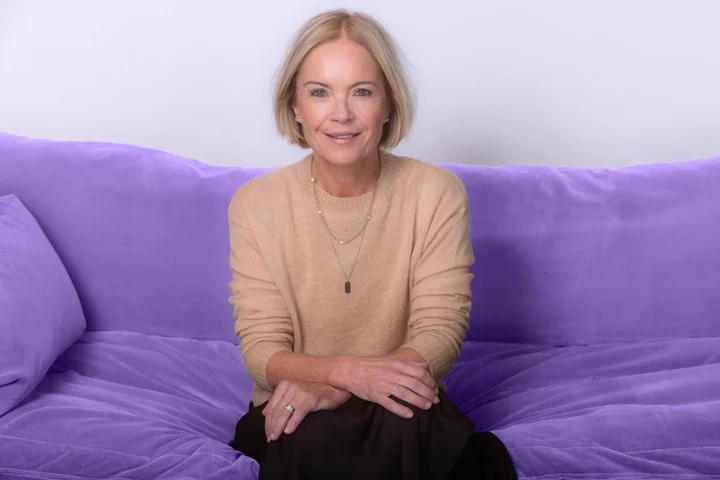
Menopause campaigner Mariella Frostrup: ‘I look forward to a future where women gradually stop feeling so ashamed’
Mariella Frostrup said she looks forward to a future where women “stop feeling so ashamed” of their bodies. The broadcaster, author and former Observer agony aunt, who has been known for her work as a menopause campaigner over recent years, also said “the world is not changing fast enough” when it comes to awareness and support for women’s health experiences. “[There has been] centuries of misinformation and misunderstanding that’s gone on around menopause. You have to look to history to see where we’ve ended up – and then in a more optimistic vein, look forward to a future where women gradually stop feeling so ashamed,” Frostrup, 60, told the PA news agency. “I mean, everything to do with women’s bodies has been a source of shame. I remember as a teenager, I was hiding my Tampax underneath cereal packets when I went to the shops to buy them, because I was so ashamed of the fact I was having a period. “You look at young people today, and I just love it when young women will announce to a roomful of people, ‘Oh, I’m on my period’. That is a great indication of the sort of liberation we need to experience around our bodies.” Frostrup, who wrote an advice column for the Observer for a decade and joined Times Radio as a presenter in 2020, co-authored the 2021 book Cracking The Menopause and is chair of the Menopause Mandate collective, whose aim is to ‘revolutionise’ the support and advice women receive through their midlife health challenges and beyond. She has now teamed up with Always Discreet on a campaign highlighting bladder leakage. Despite affecting around half of women, many (50%) are unaware this can be a common symptom of menopause, according to a survey by the brand. Of those who do experience bladder leaks during menopause, the poll (of 1,200 women) also found more than 50% are not sure they would want to discuss it with anyone, with some (19%) citing embarrassment as the reason. Frostrup, who has a teenage son and daughter with husband, lawyer Jason McCue, is keen to highlight, however, that bladder leakage is often one of the menopause symptoms women can effectively self-manage – through pelvic floor exercise. These are simple exercises that involve squeezing the muscles around the pelvis, bladder and vaginal area. The campaign sees Frostrup and TV medic Dr Philippa Kaye encouraging women to ‘Squeeze the Day’ every day, with daily pelvic floor exercises. “It’s something a lot of women live with, a lot of women don’t talk about, and a lot of women feel ashamed about – but it is actually something you can tackle, when there’s so many other symptoms women struggle to obtain treatment for,” said Frostrup. “Here’s something you can personally take agency of, and do your pelvic floor exercises. “My mum, weirdly – and I have no idea why, because I was a teenager in the Seventies – was very vocal about the need to do pelvic floor exercises. I think probably back then, it was more to do with childbirth and making that a bit easier in the future, but I was lucky in a way, as it’s something I’ve had an understanding about – although I’m still practicing how to do them without raising my eyebrows,” she added, laughing. “With so many of these things, you need a bit of levity as well. Obviously, [bladder leakage] is not the most pleasant thing – but it’s not the end of the world, and you can prevent it and actually make a difference if you’re already suffering.” Frostrup is certain that lack of awareness and support around menopause has made it “so much more difficult” for those affected, and that there’s still work to be done. “I think for an awful long time, our ignorance around the subject has made the transition through perimenopause and menopause so much more difficult,” she said. “The discovery that one in two women are going to suffer from bladder leaks – that’s an astounding proportion, particularly when you look at it as just one of 50 symptoms around menopause that women are unaware of. “I think there’s an issue in that menopause is now presented as something everybody knows about – ‘yada, yada, why is it still being talked about? You’ve got everything you wanted, now get on with it’ – and I think that’s absolutely not the case,” Frostrup continued. “Based on the thousands of women who’ve written to us at Menopause Mandate and talked to us about their symptoms, the treatment, the support they’ve been able to access, their experiences in the workplace and so on. What’s clear is that the world is not changing fast enough for these disenfranchised women. “We don’t want to rest on our laurels and just think, ‘Oh, everything’s fine now’. We’re still at base level – we’ve still got Everest to climb, when it comes to just recognition and support for women.” Mariella Frostrup has partnered with Always Discreet on their ‘Squeeze the Day, Every Day’ missions. Find out more about pelvic floor exercises via the Always Discreet Menopause Hub. (Speak to your GP if you are concerned about bladder leakage).
2023-10-18 16:24
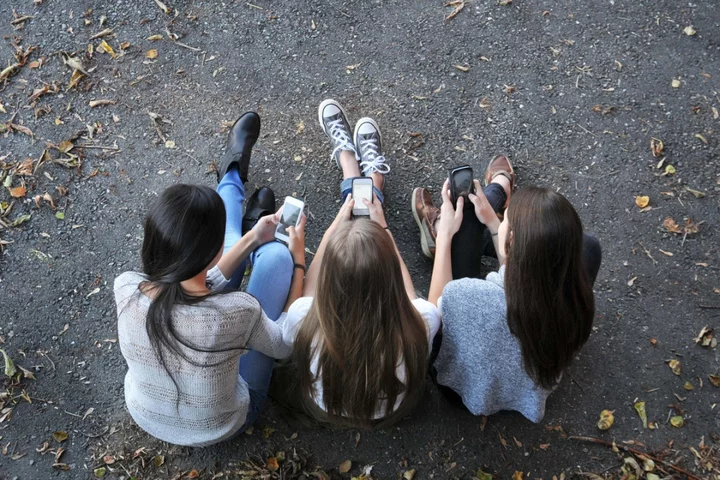
More girls miss school and college due to their periods than colds, survey finds
Girls miss more school or college days due to periods than any other reason – including colds, mental health or truancy, according to a new report. Periods cause girls to be absent from school or college for three days a term on average, compared with colds and flu (2.6 days), mental health (1.9 days) and truancy (1.2 days), the data released by washroom provider phs Group has revealed. This equates to 54 lost education days over the course of their teen years, the equivalent of 11 academic weeks. The findings form part of phs Group’s Period Equality: Breaking the Cycle report, now in its third year, for which Censuswide polled 1,262 girls aged 13-18 years across the UK. The majority (82%) cited cramps as the main reason for this, while almost one in five (19%) said they stay away from lessons because they’re embarrassed about being on their period, and one in 12 (8%) said it’s because no period products were available to them. This is despite the introduction of period equality measures in recent years, designed to improve access to free period products in education settings. “It’s important to recognise that huge advances have been made in giving girls access to free period products in schools across the UK. What we must do now is close the gap between providing schools with all the products they need and getting them into the hands of any girls that need them, for whatever reason,” said Kelly Greenaway, period equality lead at phs Group. “We know from our own data providing schools with products, that they have more than enough for their girls, so we need to tackle the misconceptions around free access to products in washrooms, and the stigma and shame that goes hand-in-hand with failing to have open conversations about menstruation.” Since the launch of the Government’s Period Product Scheme in January 2020, which provides free period products to education settings in England, via phs Group, 99% of secondary schools and 94% of post-16 organisations have ordered products through the scheme. However, the report published today highlights how periods remain a barrier to education for many girls – with the number of girls missing school due to their periods almost the same for the 2023 findings (54%) as the findings in 2019 (52%), before free sanitary product schemes were introduced. Despite the roll-out of such schemes, over half (52%) of the students surveyed said they did not find period products freely available in their school and college settings, while one in seven (14%) said they did not know if they were available. To help tackle the issue and raise awareness, phs Group is launching a new period equality podcast – called The Blobcast: Free The Period – hosted by menstrual wellbeing and confidence educator Kasey Robinson. Robinson said: “I know too well about the barriers facing so many of us when it comes to our menstrual health. It’s simply not enough to blame absenteeism figures on access to products alone. “On the ground, the story is clear: we aren’t being educated, supported and informed enough about periods. Menstruation is still a taboo subject, and our experience is a secret to keep to ourselves and something we feel forced to hide. In education settings, this is leading to more and more girls staying away from school. “Without workshops, learning resources and the support for and from teachers and caregivers, this issue will stay the same, or get worse,” Robinson added. “It should not be a revolutionary act to teach people about periods, it’s a right. We need to break the cycle of shame and encourage open and honest conversations about periods – exactly what The Blobcast is seeking to do.” The Blobcast: Free The Period launches on all free streaming platforms on October 18. More information can be found at www.phs.co.uk/TheBlobcast.
2023-10-18 13:19
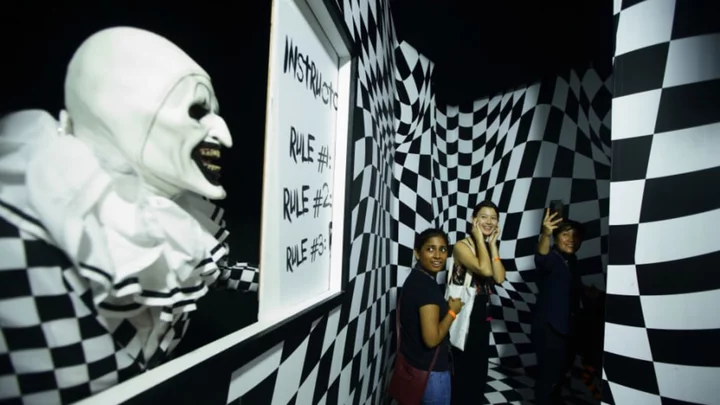
The Most Terrifying Haunted Attraction in All 50 States
From Knotts Scary Farm to Eastern State Penitentiary, these haunted attractions are worth a visit this Halloween season.
2023-10-18 12:18
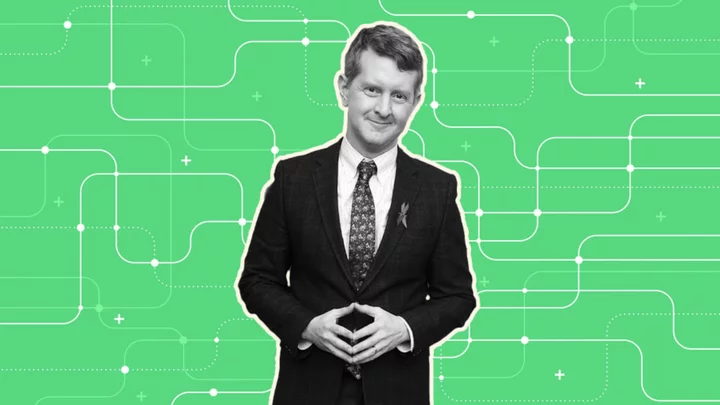
What’s the Kennection? #84
All five answers to the questions below have something in common. Can you figure it out?
2023-10-18 11:46

A new memoir serves up life lessons from a childhood in a Chinese restaurant
Curtis Chin has been championing other Asian Americans for over 30 years
2023-10-18 08:17

Spot the Skull Among the Jack-O’-Lanterns in This Halloween Brainteaser
One of the spooky faces in this Halloween brainteaser is not like the others.
2023-10-18 04:49
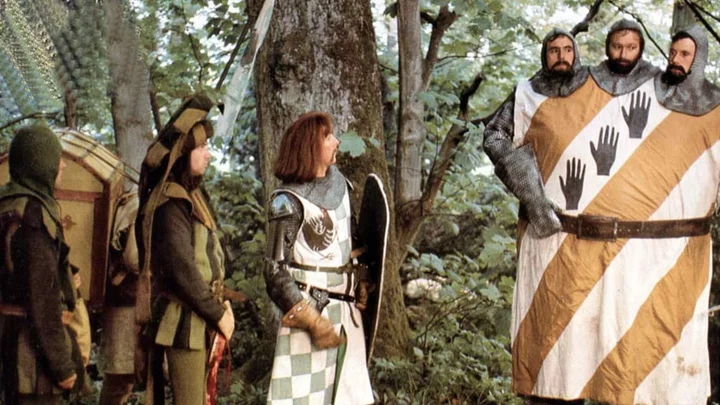
'Monty Python and the Holy Grail' Returns to Theaters For Its 48 1/2 Anniversary
The comedy classic has a Quote-A-Long version coming to a multiplex near you.
2023-10-18 03:28
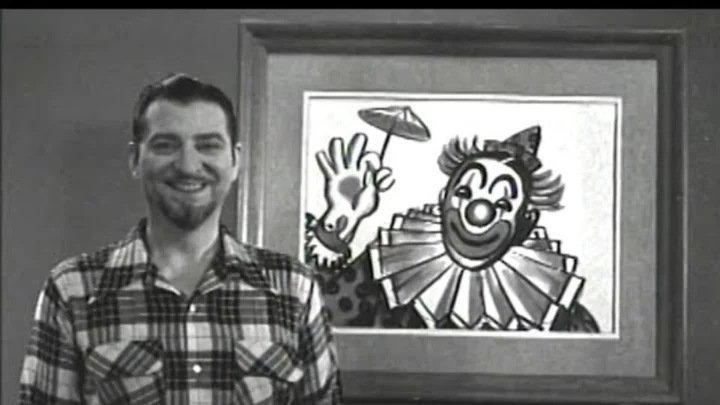
Jon Gnagy, Who Taught TV Viewers About the Joys of Art Before Bob Ross
Long before Bob Ross and his happy little trees, Jon Gnagy was teaching art to the masses.
2023-10-18 01:23
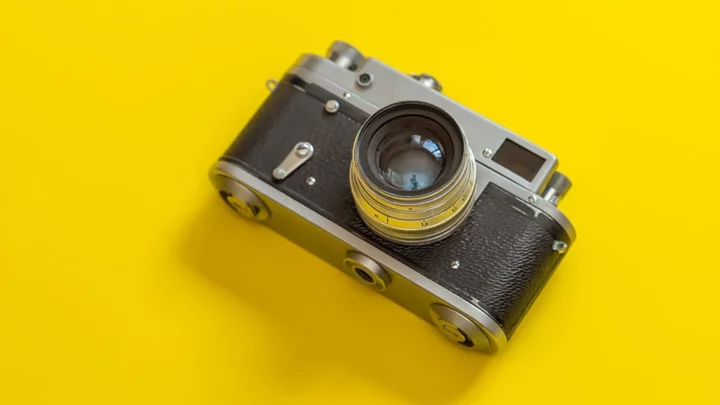
The Stories Behind 8 Famous Photos
From Elvis Presley wearing a velvet suit to meet Richard Nixon to the migrant mother who unwittingly became the face of the Great Depression, these are the true stories behind a few iconic photographs from history.
2023-10-18 00:23
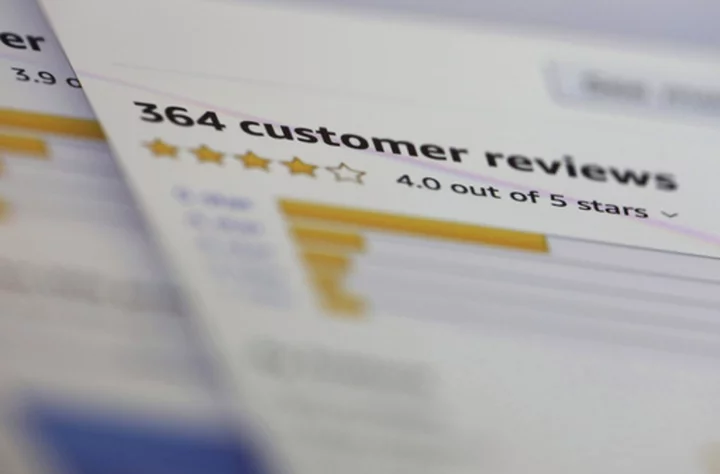
Amazon, Tripadvisor and other companies team up to battle fake reviews while FTC seeks to ban them
Some of the most used platforms for travel and online shopping said Tuesday they’re going to team up to battle fake reviews
2023-10-17 21:54
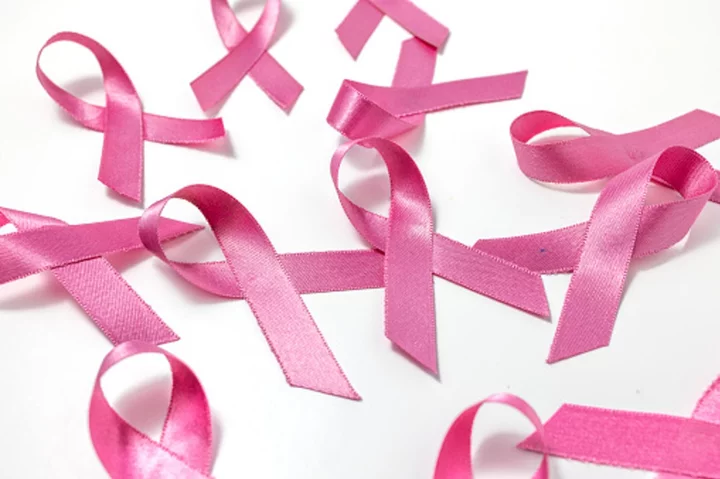
Why October is Breast Cancer Awareness Month - and why we wear pink ribbons
Although people typically associate the month of October with spooky season and the beginning of fall foliage, the month is also known as Breast Cancer Awareness Month. Breast Cancer Awareness Month dates back to 1985, when the American Cancer Society picked one week in October and teamed up with the pharmaceutical division of Imperial Chemical Industries – now part of AstraZeneca, which has worked to develop medicines for breast cancer treatment. The initial goal for the week-long event was to raise awareness towards breast cancer screenings and mammograms. First Lady Betty Ford was diagnosed with breast cancer when her husband, former US president Gerald Ford, was in office. As a breast cancer survivor, she initially helped bring attention to the disease during the week-long event. Over the years, the original week transformed into a month-long event. The goals for Breast Cancer Awareness Month have also evolved over time, such as supporting people diagnosed with breast cancer and metastatic breast cancer, educating people about breast cancer risk factors, stressing the importance of regular screening starting at age 40, and fundraising for breast cancer research. However, the well-known pink ribbon associated with Breast Cancer Awareness Month wasn’t introduced until the 1990s. The inspiration for the ribbon dates all the way back to 1979, when the wife of a hostage who had been taken in Iran tied yellow ribbons around the trees in her front yard as a symbol of her desire to see her husband return home safely. Ribbons were also used years later during the AIDS epidemic, when activists made bright red ribbons to represent those affected by AIDS. The AIDS ribbon was made mainstream after the 1991 Tony Awards, when actor Jeremy Irons was the first to publicly wear the pinned ribbon with a singular loop while hosting the awards show. A woman named Charlotte Haley is attributed with the creation of the Breast Cancer Awareness ribbon, as she was the granddaughter, sister, and mother of women who have all battled breast cancer. Initially, she designed the breast cancer ribbon to be peach-coloured instead of pink. With each ribbon, she passed out a card that read: “The National Cancer Institute annual budget is $1.8 billion, only five per cent goes for cancer prevention. Help us wake up our legislators and America by wearing this ribbon.” Because of her success in passing out thousands of ribbons, many corporations and news outlets reached out to Haley asking to showcase her ribbons and the message she was promoting. She declined each offer as she believed they were “too corporate”, but Self magazine was increasingly persistent. The magazine’s lawyer insisted they change the symbol’s colour, and the pink ribbon was born. In October 1992, the pink ribbon first spread across the nation after Estée Lauder displayed the symbol on its cosmetic counters throughout the country. While the iconic shade of pink is normally associated with Breast Cancer Awareness Month, other colours have been introduced, including hot pink for inflammatory breast cancer; teal and pink for hereditary and gynecologic cancers; pink and blue for male breast cancer; and teal, pink, and green for metastatic breast cancer. According to the American Cancer Society, breast cancer is the second most common cancer in women after skin cancer. There is a 13 per cent chance, or one in eight chance, that a woman will develop breast cancer at some point in her lifetime. Although breast cancer is more typically associated with women, it can also occur in men. In 2021, President Joe Biden designated 17 October to 23 October as Men’s Breast Cancer Awareness Week. While Friday the 13th may be a spooky-themed day, don’t forget that it’s also Metastatic Breast Cancer Awareness Day. Read More Elizabeth Hurley issues reminder to women about getting mammograms as she raises awareness about breast cancer Amy Dowden delights Strictly Come Dancing fans in surprise appearance amid breast cancer treatment Jill Biden urges women to get mammograms or other cancer exams during Breast Cancer Awareness Month Why October is Breast Cancer Awareness Month - and why we wear pink ribbons Elizabeth Hurley issues reminder to women about getting mammograms Sam Neill says he’s ‘not remotely afraid’ of death as he shares blood cancer update
2023-10-17 19:27
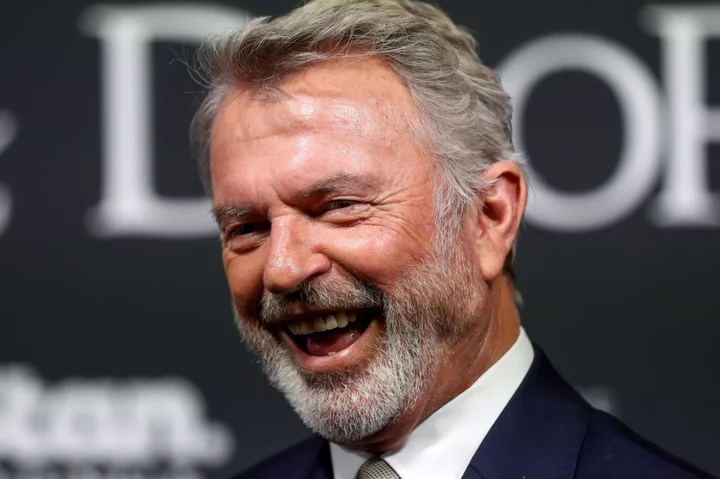
Sam Neill shares blood cancer update as he reveals he’s ‘not remotely afraid’ of death
Sam Neill has been warned by doctors that his cancer treatment drug will stop working at some point, the actor said as he provided a health update months after revealing that he had been diagnosed with stage-three blood cancer. Earlier this year, the Jurassic Park star released his memoir Did I Ever Tell You This?, in which he revealed that he was being treated for angioimmunoblastic T-cell lymphoma. At the time, Neill shared that he had originally undergone chemotherapy, but that the cancer had soon stopped responding. He then went onto an experimental anti-cancer drug. In a new interview, Neill, 76, shared that he’d upped his dosage of the “grim and depressing” drug from once a month to every two weeks. However, he said, he has now been in remission for 12 months. Neill told ABC’s Australian Story that while he would be on the treatment indefinitely, doctors have told him that, at some point, it will stop working. “I’m prepared for that,” he said, adding that he is “not remotely afraid” of death. The Piano star said that he had first found lumps in his neck in early 2022, and soon learnt that he had cancer. “I started to look at my life and realise how immensely grateful I am for so much of it,” Neill said. “I started to think I better write some of this down because I’m not sure how long I have to live. I was running against the clock." First sharing his cancer diagnosis in March, the New Zealand actor – who is best known for playing palaeontologist Dr Alan Grant in the Jurassic Park franchise – said that dying would “annoy” him. “I’d really like another decade or two, you know?” he said. “We’ve built all these lovely terraces, we’ve got these olive trees and cypresses, and I want to be around to see it all mature. And I’ve got my lovely little grandchildren. I want to see them get big. But as for the dying? I couldn’t care less.” In an interview with The Independent earlier this year, however, Neill threw out the idea of retiring. “The idea of giving up my day job? Intolerable!” he said. “I love acting. It’s really good for me to keep walking onto new sets with young actors and all that stimulation. New words, new ideas, there’s nothing like it. I never want to give that up. The idea of retirement, of having to play golf, fills me with untold dread,” he said. Read More Sam Neill says Robin Williams was ‘the loneliest man on a lonely planet’ Amy Dowden delights Strictly Come Dancing fans in surprise appearance amid breast cancer treatment Richard E Grant says there are friends he’ll ‘never speak to again’ after death of wife Joan Sam Neill says he’s ‘not remotely afraid’ of death as he shares blood cancer update Pregnant Jana Kramer shares details of her recent hospitalisation 4 black women on their experiences with breast cancer
2023-10-17 13:16
